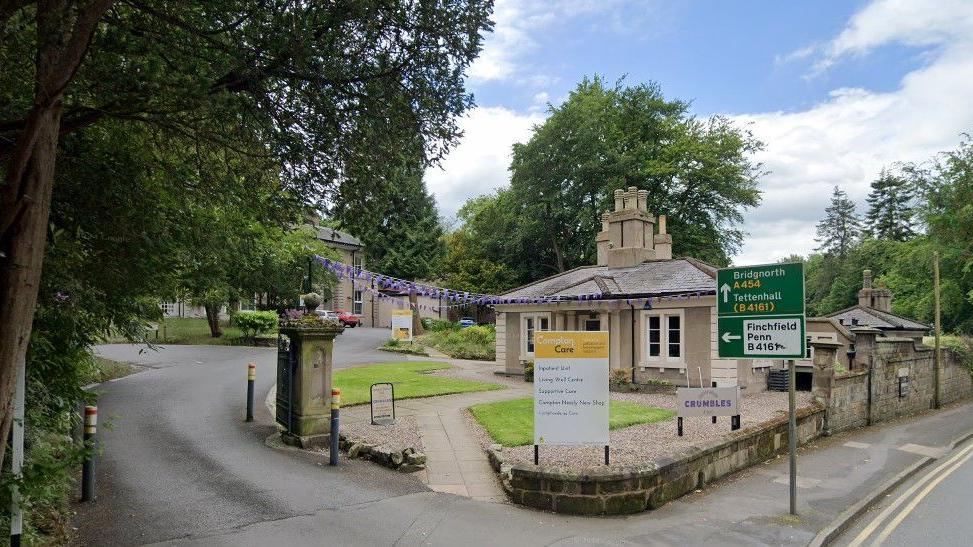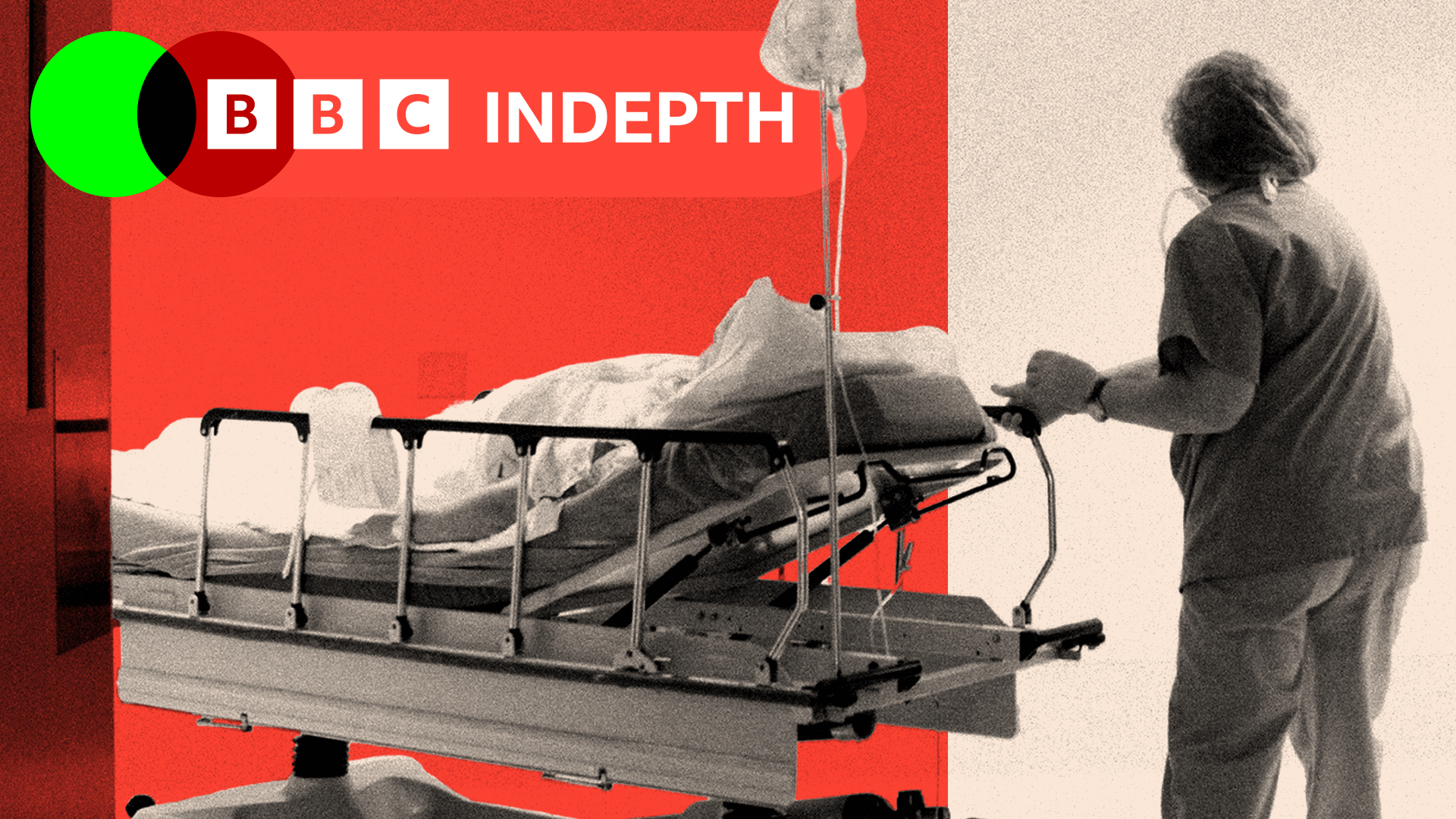Daughter criticises hospital's end-of-life care
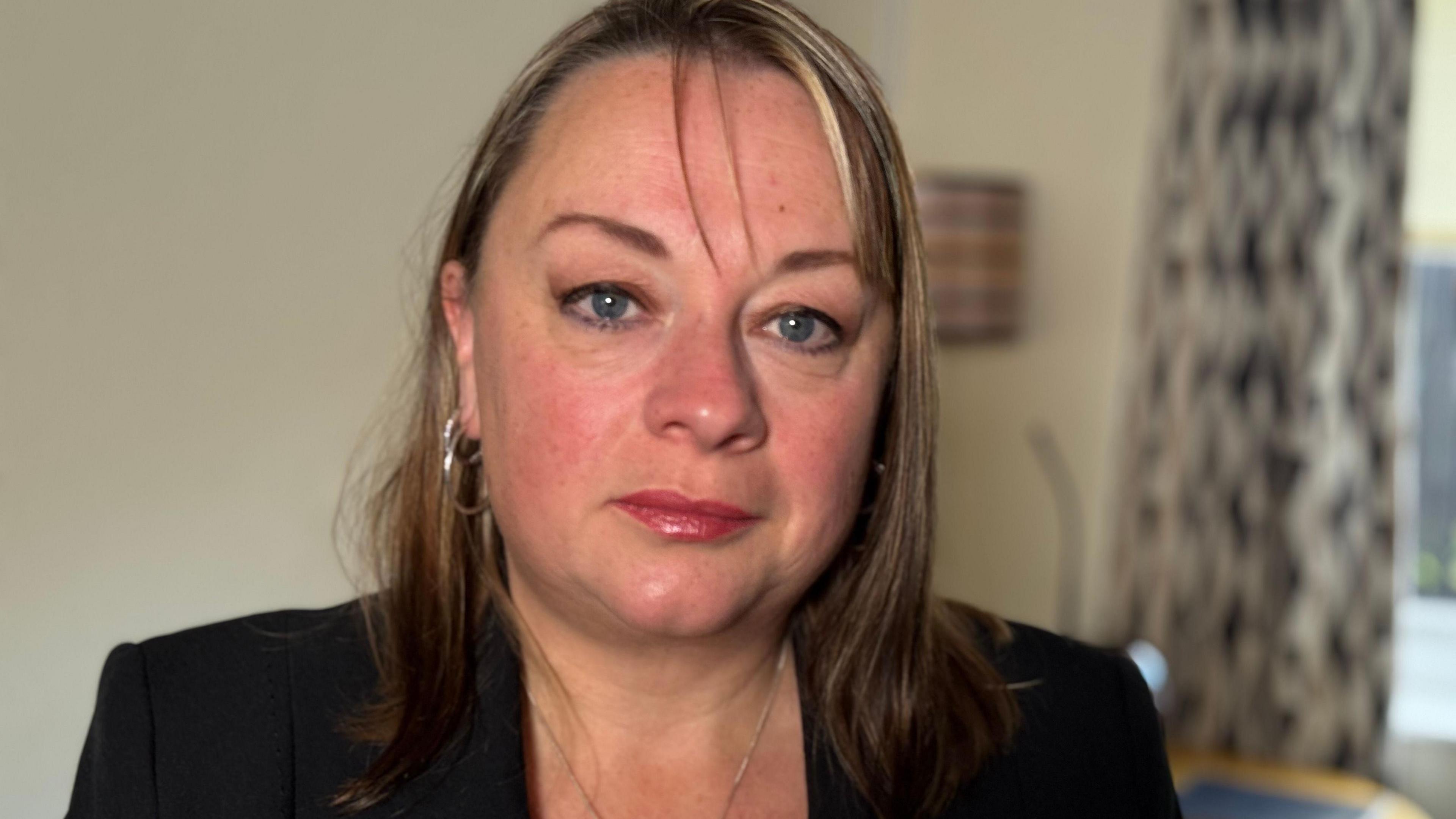
Joanne Coogan said a doctor appeared to laugh after finding out her father had died
- Published
A hospital has apologised to a woman after she criticised the end-of-life care her father had in his final days being treated for cancer.
Joanne Coogan said, in one case, a doctor appeared to laugh shortly after her dad passed away while, in his last week, staff did not wash him or communicate with his family properly.
Phil Coogan, from Birmingham, was 72 when he died at Birmingham's Queen Elizabeth (QE) Hospital with his wife and daughter by his side.
She has since offered to go in to help improve the hospital's care and the NHS trust running it says they will take her up on this.
"We are truly sorry for the distress Ms Coogan and her family experienced during her father's time in our care," a spokesperson for the University Hospitals Birmingham (UHB) NHS trust added.
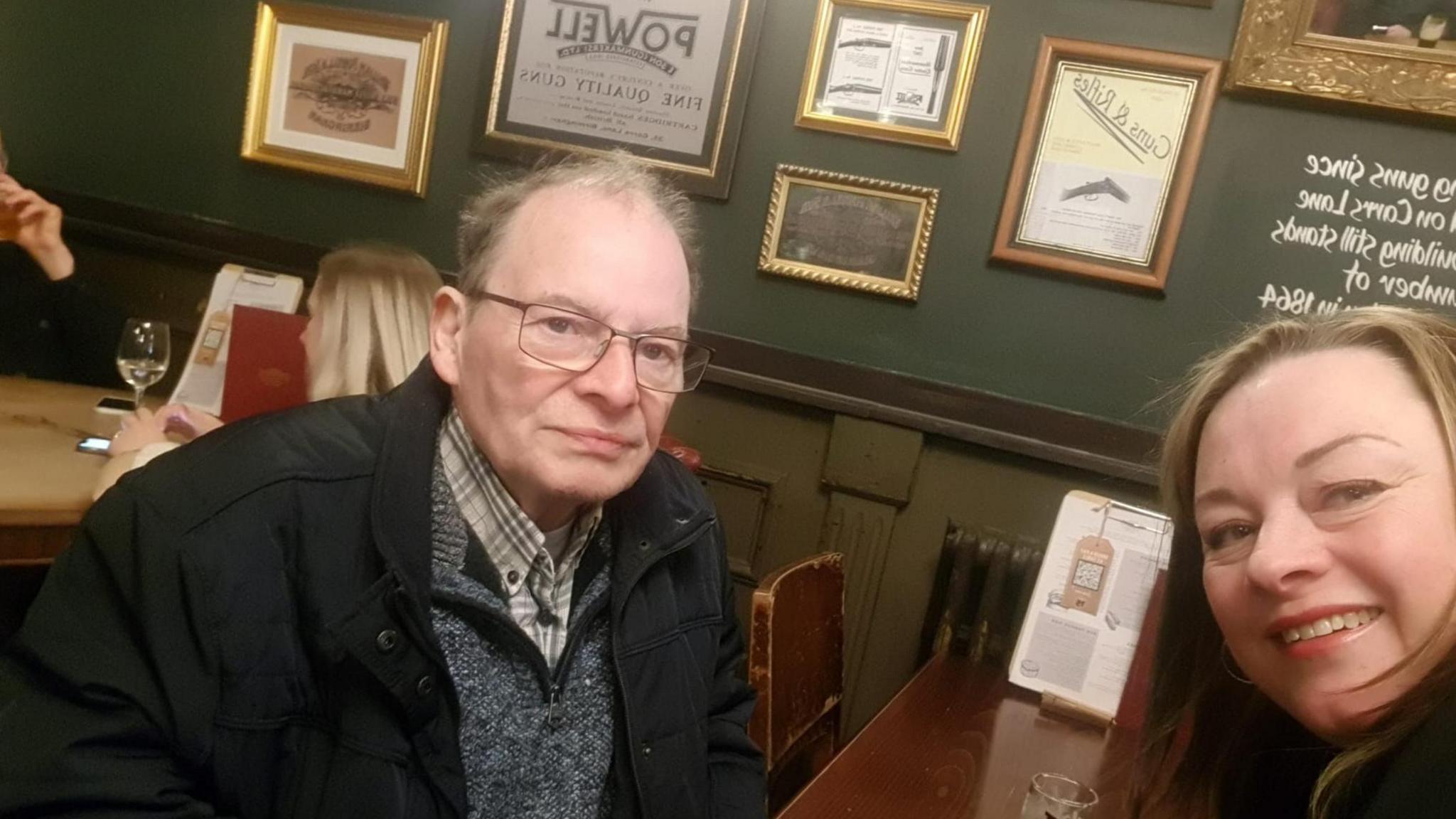
Hospital bosses apologised to Ms Coogan for her criticisms of the care they gave her father, Phil Coogan
Mr Coogan spent his final week at the hospital in May but his daughter said he was not washed or checked on as regularly as they wanted and they had to help him get off the toilet, despite asking a nurse for help.
"He just deserved that last bit of dignity and care, compassion and respect," Ms Coogan said.
"We were having to Google what end of life involved because nobody explained to us what to expect."
She said she went to tell nurses when he died and a doctor appeared to laugh when she went into his room after he passed away.
"[She] took one look at him and burst out laughing in front of us as a family," she said.
"I don't know, maybe it was nerves, maybe she wasn't trained enough, I don't know. But there's no excuse.
"If you're going to become a doctor or a nurse you should know. You should already have the empathy and compassion before you start training; before you want to go into that job, that should be your mindset."
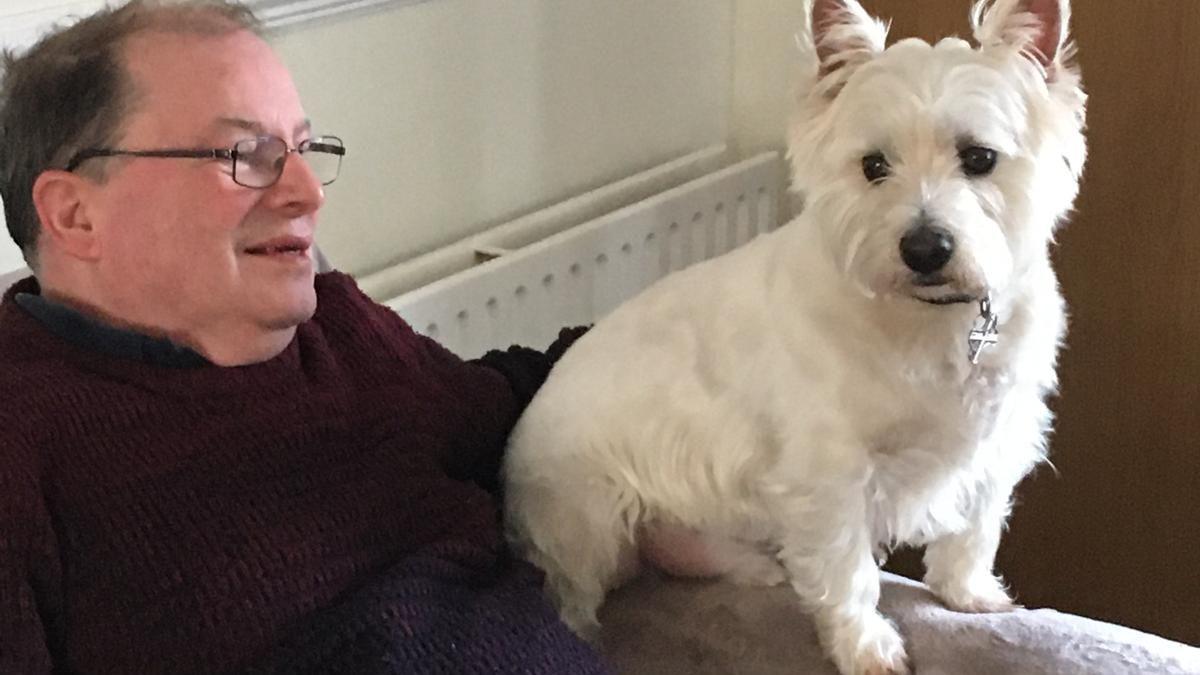
Mr Coogan's daughter said he was not washed or checked on as regularly as his family would have liked when in the hospital
A letter from the hospital, sent to the family and seen by the BBC, told them the doctor and other staff have been spoken to, with some having to complete training including communication skills in end-of-life care.
Ms Coogan said she now wanted to go into the hospital voluntarily to help with training from a family's perspective.
She said although a small number of staff were good, their experience was largely poor.
"I am willing to work with the QE with this in my dad's name," she explained.
The spokesperson for UHB said they were "truly sorry" for the distress the family experienced during Mr Coogan's last week and they offered their "heartfelt condolences for their deep loss".
"We have apologised directly to Ms Coogan and are grateful for their willingness to help improve the end-of-life care we provide to our patients," they added.
"Their offer to share their experience with staff is kind and generous; we will welcome this as part of our commitment to hearing them and ensuring patients and their families receive dignified, respectful, and compassionate care."
Hospice funding concerns
Ms Coogan went on to praise Birmingham Hospice, where her dad spent two weeks in April and said she would like to see better funding for hospices.
"It is such a shame that more funding cannot be put into hospices where the nurses are dedicated and trained and it is their speciality to deal with end of life," she said.
Birmingham Hospice had to reduce their number of beds in 2024 due to rising costs.
Paul Bytheway, their chief executive, said they were seeing rising demand for their care as people lived longer with "increasingly complex health conditions".
"Sustainable, long-term government funding remains essential to maintaining and growing access to these vital services," he added.
The government was working to make sure palliative and end-of-life care was sustainable, a spokesperson for the Department of Health said
"We are also investing an extra £100m to improve hospice facilities - which is the biggest investment in hospices in a generation and in addition NHS England is providing £26m for children and young people's hospices."
Birmingham Hospice had received £345,224 from the first part of the funding and £1,113,392 from the second, they added.
Get in touch
Tell us which stories we should cover in Birmingham and the Black Country
Follow BBC Birmingham on BBC Sounds, Facebook, external, X, external and Instagram, external.
Related topics
More like this story
- Published1 July 2024
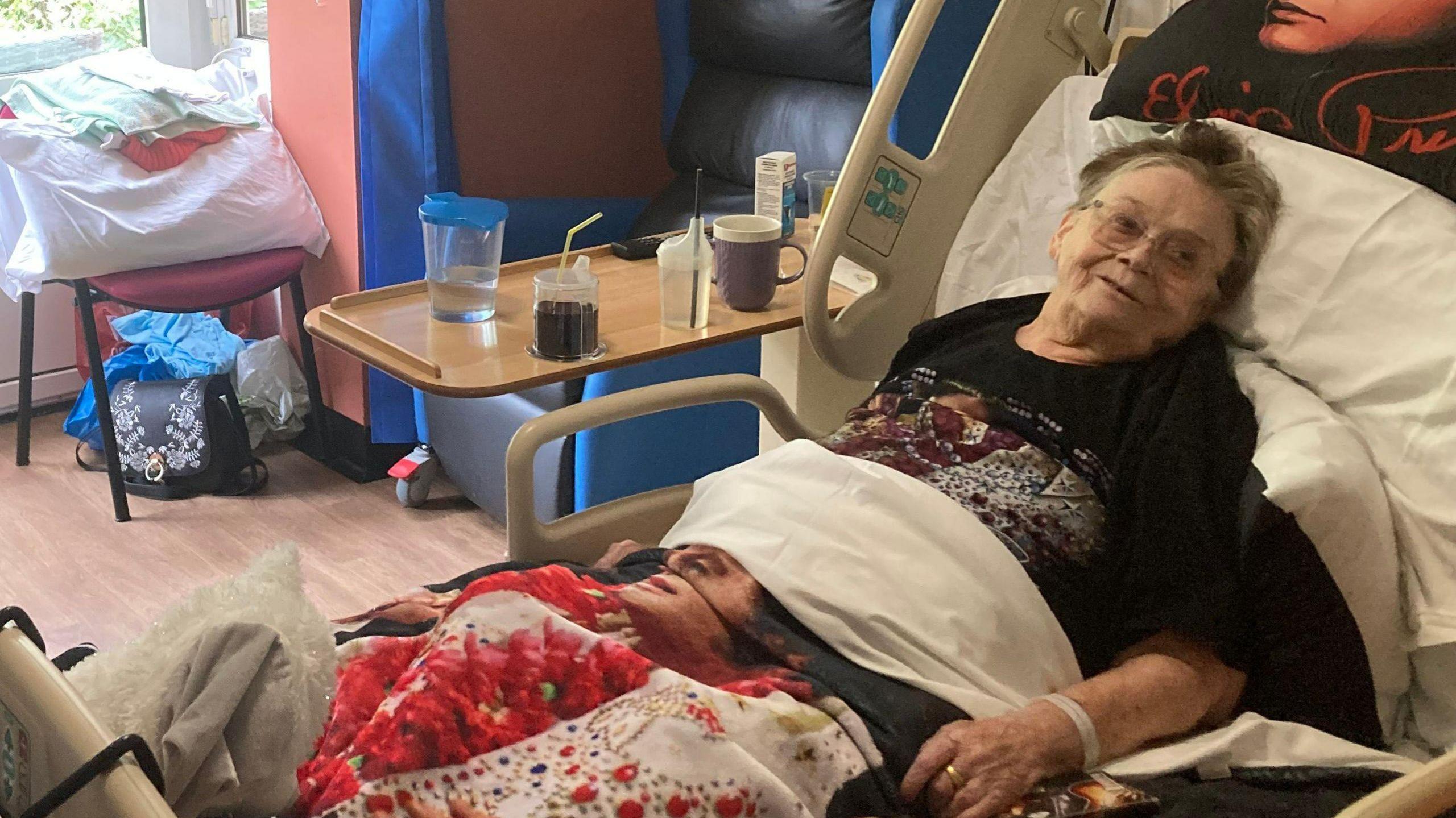
- Published13 August
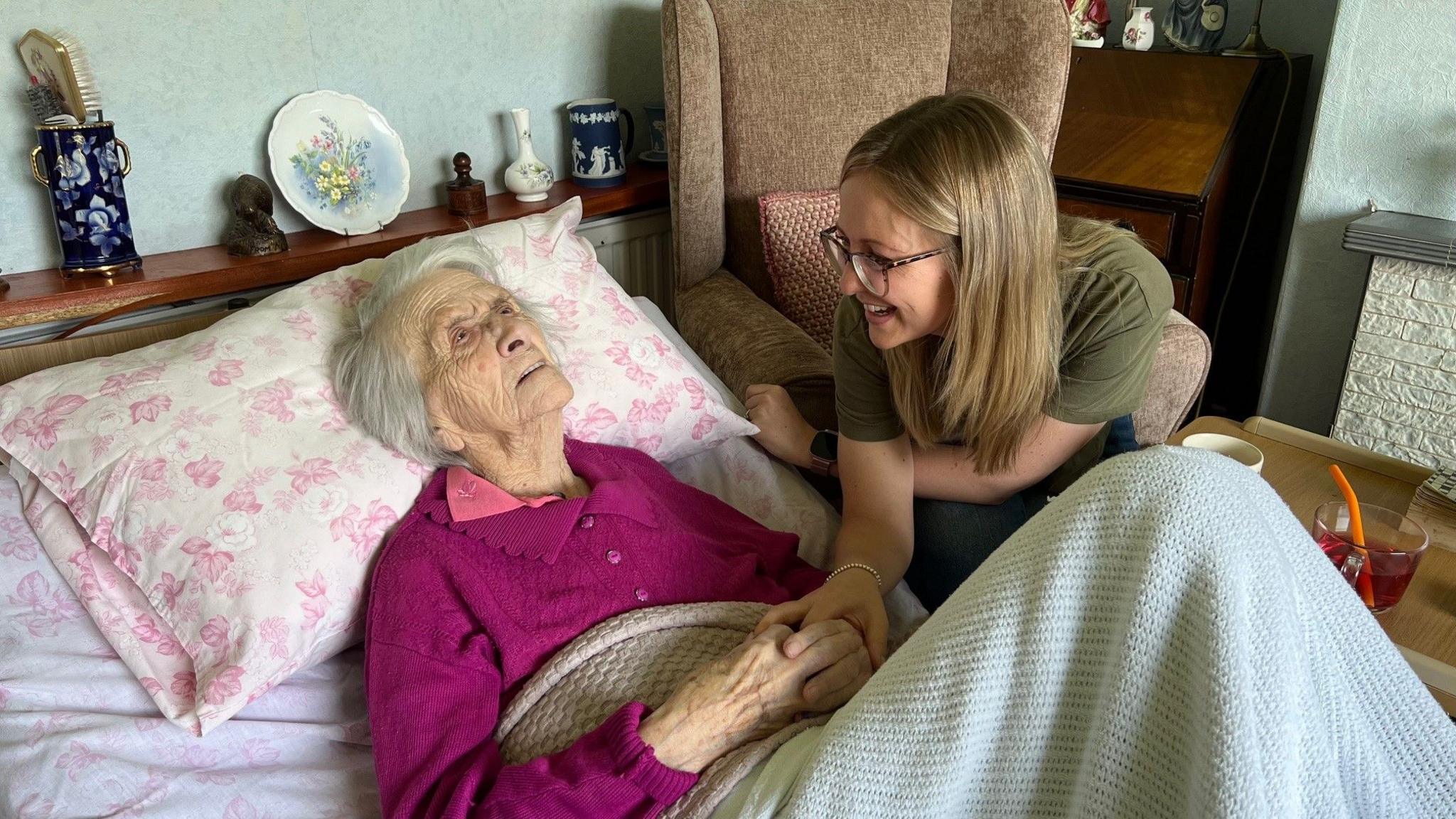
- Published26 July
